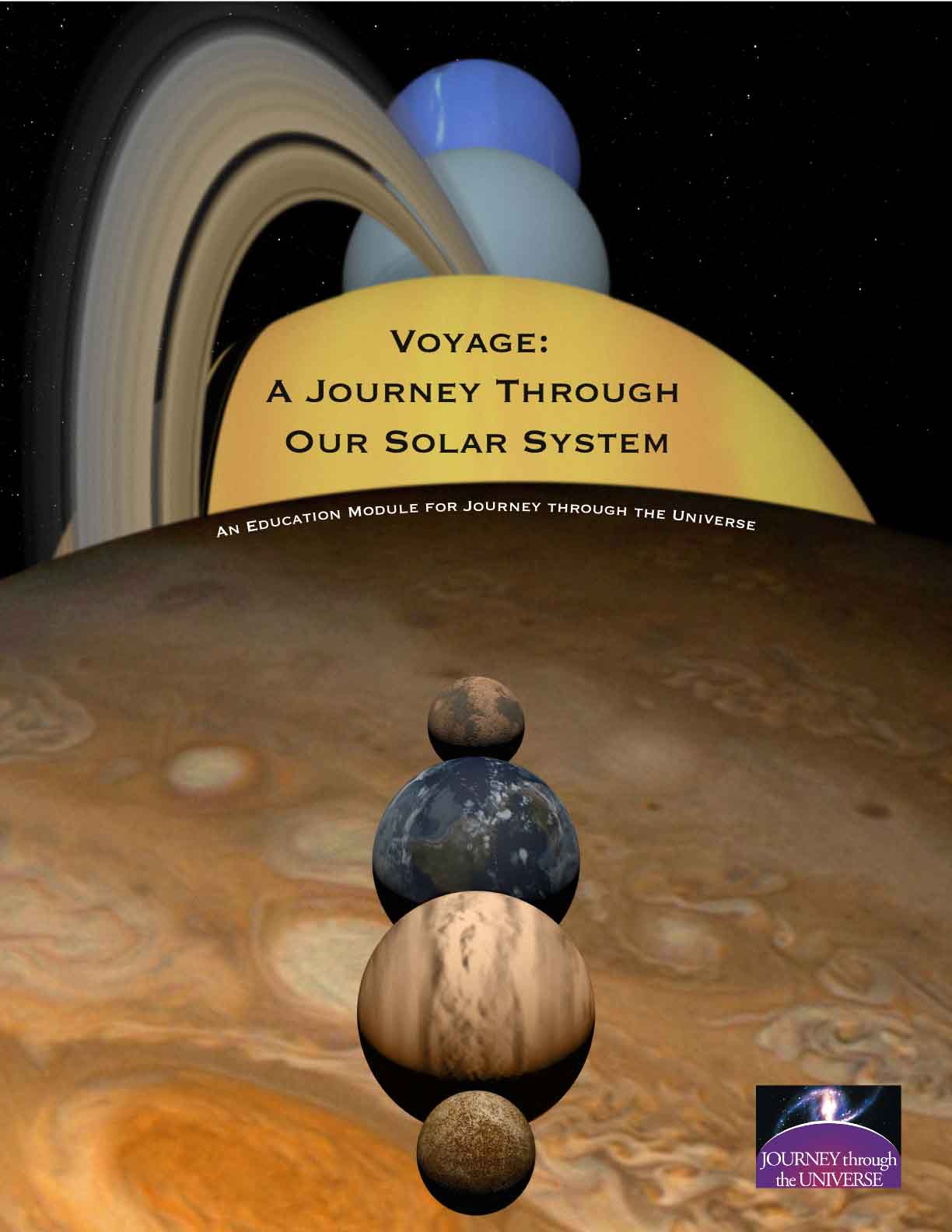
The Grade K-12 Voyage Education Module—a compendium of lessons on Solar System science developed for the Voyage National Program. Click on Image for Details
All the Center’s programs are delivery vehicles for rich content in the Earth and space sciences. We like to think of the programming as independent of the content, and the content as modules that are plug-and-play.
Our content includes a library of Grade K-12 compendia of lessons, an extensive array of presentations designed for audience participation, and engaging reading at Blog on the Universe, where you’ll find posts and essays on Earth and space, and science education.
Grade K-12 Compendia of Lessons
The Center’s programs are supported by a curriculum library of Grade K-12 Education Modules—each Module a compendia of inquiry-based, hands-on lessons at elementary, middle, and high school levels—that are used as the curriculum for community-wide programming.
Five Modules are currently available covering topics such as exploration of the Solar System, galaxy, and Universe; Earth systems science; the search for extraterrestrial life; building a permanent human presence in space; and engineering interplanetary spacecraft. >More
Presentation Topics for Diverse Audiences
The Center’s staff researchers have given thousands of presentations to diverse audiences—students, families, teachers (at conferences and workshops), and the general public. The hallmark is audience participation, and the topics addressed span the Earth and space sciences. The central objective is to develop conceptual understanding of the universe around us by building bridges to the familiar—using the power of models.
Through the Journey though the Universe program, presentations in classrooms by our Visiting Researchers—scientists and engineers from research organizations across the nation—provide a personal view of scientific research on the frontiers of exploration, and are crafted by the presenters to dovetail with the local curriculum. >More
Engaging Reading at Blog on the Universe
The Center’s Blog on the Universe covers a diverse array of topics in the Earth and space sciences and exploration, and is committed to science education as conceptual understanding at an emotional level. The Blog also contains Resource Pages with essays addressing broader topics than a Post, including: the Nature of Our Existence in a greater universe, the Art of Teaching, Scientists and Engineers as Heroes, and the Power of Models in learning environments. >More



